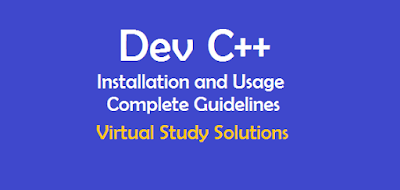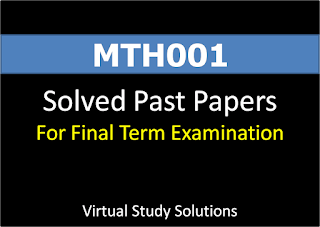NTS GAT Subject Test Preparation Complete Guidelines
NTS GAT Subject Test Preparation - Guidelines
Here we will discuss complete guidelines for NTS GAT Subject Test Preparation. As You may know GAT Subject test is designed by NTS for assessment of candidates for admission into PhD programs, scholarship and recruitment for post. Test result is valid for two years. In this Tutorial we will guide you about preparation as well as the test-taking strategies for qualifying GAT subject test with high scores.Previously we shared : How to apply for NTS Test - Complete Guideline.
 |
| NTS GAT Subject Test Preparation Complete Guidelines |
GAT subject test has 100 MCQs. Time allowed for the test is 2 hours. Test is divided into following two sections:
- General section: 30%
- Subject section: 70%
- Verbal (English)
- Analytical Reasoning
1 - Preparation for Verbal (English):
English part assesses candidate’s grammatical learning and vocabulary with regards to its correct utility.
The questions include:
- Correct usage of a verb, adverb, adjective, conjunction or preposition in sentences
- Synonyms and Antonyms
- Analogies questions
- Paragraph based questions
- Tense related questions
Guidelines for preparation of Verbal (English)
The guidelines for preparation are given below:Learn the basic rules of English tenses as some of the questions are about using correct form of a verb or auxiliaries in sentence.
Example: He has ______ the glass.
(A) break
(B) broke
(C) broken.
Answer: He has broken the glass.
Learn correct usage of prepositions which are commonly used. All tests have at least two to three MCQs about correct usage of preposition.
Example: Someone is knocking ____ the door.
(A) on
(B) over
(C) at
(D) up.
Answer: Someone is knocking at the door.
Study some good books of MCQs (i.e. SAT-I). Most of the ‘synonyms, antonyms and analogies’ question are given from those books in the test.
Study the local books of MCQs as they offer a wide range of MCQs designed for test. It will enable you make preparation in short time.
2 - Preparation for Analytical reasoning:
Analytical reasoning assesses you on the basis of your mental capabilities and skills of situational analysis and processing. You are given a set of data as well as some rules. You asked to process data according to given rules. Examples: Sajid has to study four books (i.e. English, Physics, Chemistry & Biology) on four different day from Thursday to Sunday. He has to study the books according to the following rules:Chemistry on a day before English
Biology is studied on a day after Physics
Q. No.1. Which of the following is correct order of books for four days?
- Chemistry, Biology, English, Physics
- Biology, Chemistry, English, Physics
- Physics, Chemistry, Biology, English
- English, Chemistry, Biology, Physics.
- English
- Biology
- Physics
- Either English or Physics
- Chemistry on Thursday
- Physics on Sunday
- Physics on Thursday
- Biology on Saturday
Guidelines for preparation of Analytical reasoning
Here are some guidelines:- MCQs requires attention. Be attentive and focused on the question during test.
- To attempt the question, focus on both data as well as the rule simultaneously. Students usually focus only on data, ignoring the given rules or vice versa. You have to retain both in your mind to solve them quickly.
- If rules are given as long statement, better you draw short symbol for them on rough paper. It will help you easily grasp them while focusing on data as well as the options.
- Most of the question are about making combination of given items. Hence, prepare such questions.
- Practice those MCQs from the locally available books. It will help you learn the nature of question as well as techniques to solve them.
Preparation for Subject Section:
The subject section varies for each discipline of admission into PhD. Similarly, it varies for the area of recruitment, if the test is attempted for recruitment purposes.
Guidelines for preparation of Subject Section
Here are some guidelines for preparation:
- Study your subject thoroughly to learn each topic conceptually.
- During preparation, have a pencil and underline information given in each sentence which can be asked in MCQ. You can also use high-lighter for high-lighting the important facts and figure.
- Be a keen reader and inquisitive learner to grasp ideas given in each sentence.
- Note the important information such as dates, definitions, names of scholars, main assumptions of theories and key steps involved in processes. These are important areas which are asked in MCQs.
- Apart from course books, you must also study the MCQs books of your subjects.
- Revise you books several times because revision helps in retaining the learnt content in mind for long.
NTS Test Taking Strategies - Guidelines
- Time for MCQs exam is usually short. You should divide the total time on number of MCQs to get an idea of time for each MCQ.
- You must have a wrist watch during your test. Keep an eye on the wrist watch to move on with time.
- Read every MCQ with care but speedily to finish the test in time.
- Attempt the easy MCQs first. Leave the complicated MCQs for the end. Encircle the number of every un-attempted MCQ to identify it easily in the end.
- Do not stick to one MCQ if it is consuming much of your time. It will waste all of your time for the other easy MCQs.
- If you find a MCQs totally complicated because you do not have any idea about it. Skip out some option which you think cannot be the answer. The remaining option would increase your chances of selecting correct option from them.
- You should practice some available test at home for preparation for the real test. It will help you learn the tactics of solving MCQs and finishing test in time.



Comments
Post a Comment